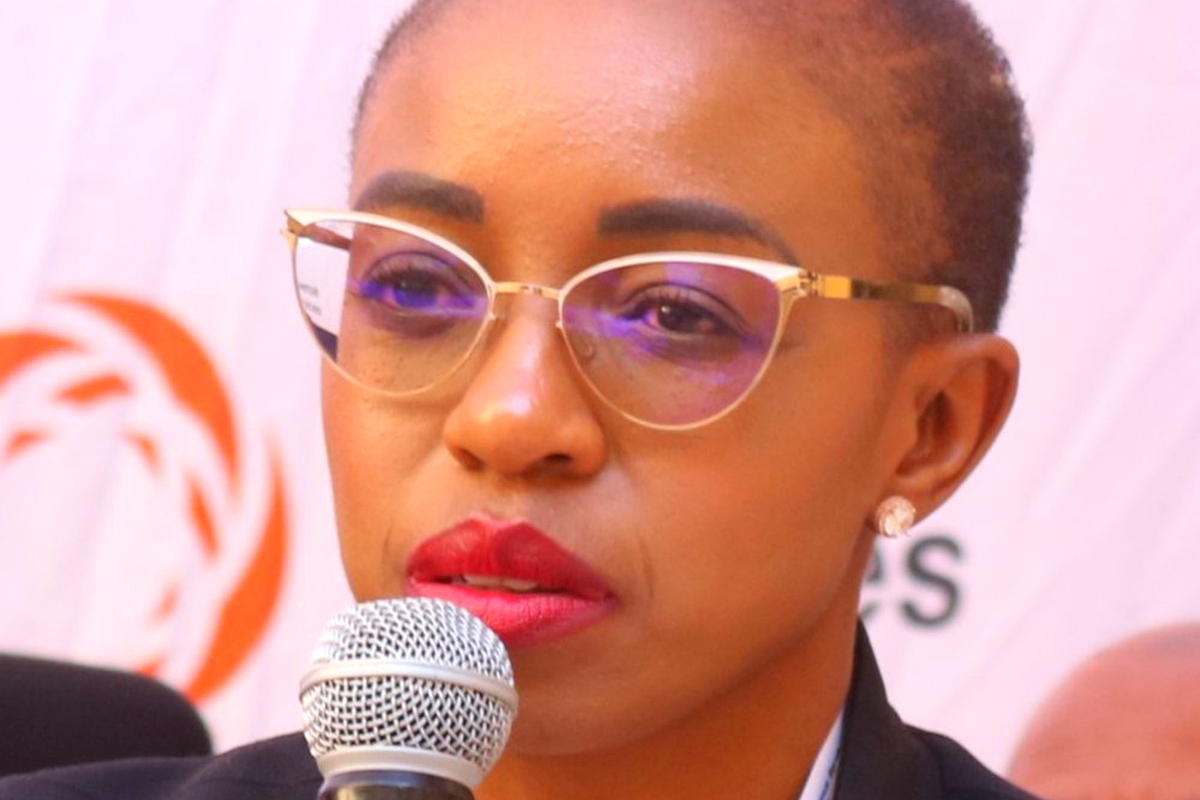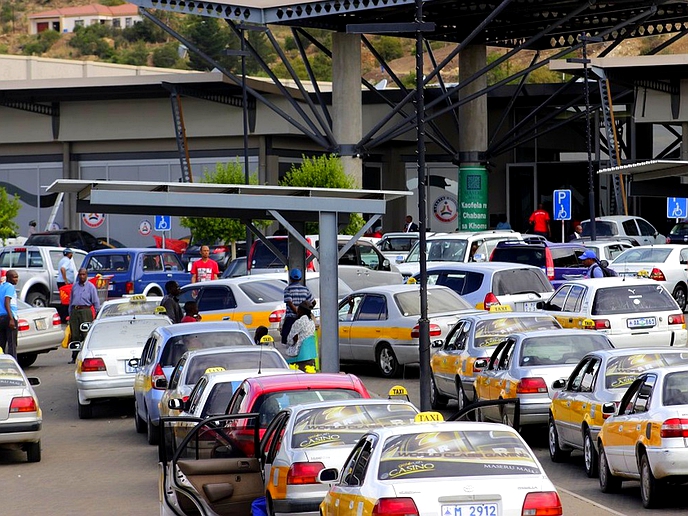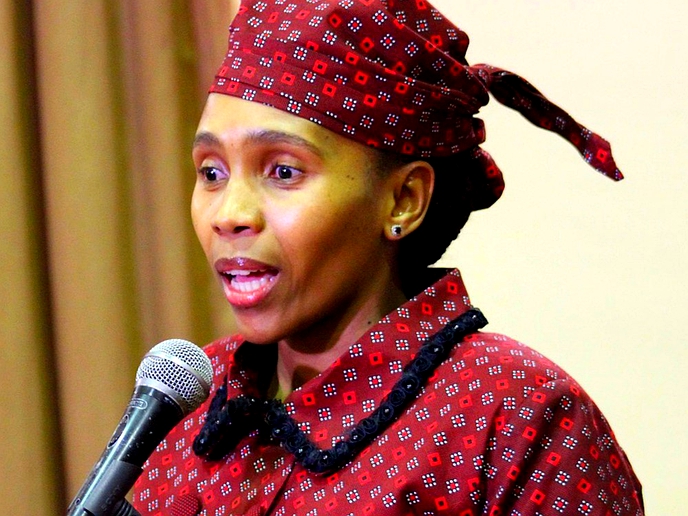REVENUE Services Lesotho (RSL) has initiated a strategic partnership with the textile industry to boost collaboration and tax compliance.
business
May 10, 2024
RETHABILE MOHONO
4 min read
Taxman collaborates with textile sector

The Commissioner-General of RSL, ’Mathabo Mokoko
Story highlights
Focusing on outreach programmes, RSL is tackling sector-specific challenges and enhancing tax remittance by engaging various sectors.
During a pivotal meeting held on May 3, the revenue collection body discussed the taxation challenges facing the textile industry and explored ways to improve compliance. The session covered critical customs-related compliance issues, including registration, declarations, PAYE, VAT, and income tax.
It also introduced participants to RSL's compliance model, underscoring the organisation's commitment to strengthening stakeholder relations.
The Commissioner-General of RSL, ’Mathabo Mokoko, unveiled the 2024–2027 strategy to key stakeholders in the textile sector, emphasising the industry’s vital role in maintaining tax regulations to bolster the nation’s economy.
She highlighted opportunities for the sector, including the Authorised Economic Operators (AEO) programme, which could significantly aid industry growth.
Conversely, the Secretary General of the Lesotho Textile Exporters Association (LTEA), 'Malibakiso Majara, commended the RSL for its proactive engagement with the textile sector.
She expressed optimism about the potential for improved tax compliance and highlighted the challenges her sector faces with tax remittance.
Majara urged the RSL to address these issues promptly. Both parties agreed to hold regular meetings to foster stronger cooperation.
In its performance report for the fiscal year 2023–24, the RSL disclosed that it did not meet its revenue collection target, falling short by 9.3% as it collected M8.87 billion in taxes, below the government's target of M9.78 billion. Despite this shortfall, the Commissioner General pointed out that revenue collection had risen by 12.5% compared to the previous fiscal year, which saw collections of M7.83 billion.
“We were able to remit to the government of Lesotho M8.87 billion against the set target of M9.78 billion," said Mokoko while presenting the RSL 2023/24 revenue performance report.
Despite falling short of its target by 9.3% for the 2023–24 financial year, RSL is pleased to report a 12.5% increase in revenue collection compared to the previous year.
Mokoko acknowledged the challenges faced during an exceptionally tough fiscal year, noting that the expected economic rebound from global disruptions did not materialise as hoped.
"The economic outlook at the beginning of the financial year had depicted a projected growth of 2.1 percent, but in reality, the economy grew by about 0.9 percent at the close of 2023, and this negatively affected the collections across the board,” she explained,
However, Mokoko noted that the construction sector has had a minimal impact on the economy, contributing only an average of 2.7 percent to the Gross Domestic Product (GDP), thereby affecting the main tax types.
"The annual inflation rate was expected to average 6.6 percent in 2023, then gradually moderate to 5.3 percent and 5.0 percent in 2024 and 2025, respectively, since the supply and demand imbalances that drove inflation to record highs in 2022 were expected to gradually diminish,” she said.
She also explained that inflation has remained high, reaching 7.3 percent since February 2024, which has adversely affected collections from the wholesale and retail sectors, leading to fewer VAT collections as inflation impacted consumer spending patterns.
Despite these challenges, Mokoko reported notable successes, including the registration of almost 1,000 new taxpayers, primarily from the agriculture, retail, and construction sectors, in the 2023–24 fiscal year.
Enjoy our daily newsletter from today
Access exclusive newsletters, along with previews of new media releases.
“We have observed instances where taxpayers are intentionally avoiding taxes and cheating the government out of revenue. Additionally, we are troubled by individuals who are not accurately reporting their income or turnover,” she said.
This progress is part of the significant strides made under the Lesotho Tax Modernisation Project.
Additionally, Mokoko expressed concerns over certain sectors that continue to evade taxes.
Despite these obstacles, the strides made in taxpayer registration and modernisation signal a robust effort to improve tax compliance and administration.
"Under E-Taxation, a fully-fledged e-filing solution has been successfully deployed for all tax types. The e-payment and e-registration solutions have also been completed," Mokoko noted.
Starting in the 2024–25 financial year, RSL will implement an e-invoicing solution.
Mokoko said from April 1 to June 30, each year marks a crucial period in their tax calendar, as it is during this time that all taxpayers, both resident and non-resident, are required to fulfil their tax obligations by filing tax returns and paying taxes due.
“This window of time provides individuals and businesses with the opportunity to ensure that their tax affairs are in order in line with the tax laws of Lesotho. I extend a resounding call to action to all taxpayers across Lesotho, irrespective of category or scale of operations, whether you represent a large corporation, a small or medium enterprise, a partnership, a sole trader, or an individual. If you have earned income during the 2023–24 financial year, it is imperative that you fulfil your civic responsibility by filing and submitting your income tax returns,” she said.
Last week, RSL announced that they are working on developing and implementing an e-invoicing solution for VAT compliance, aimed at streamlining and expediting the process of VAT returns and refunds in Lesotho, ultimately contributing to the country's fiscal objectives.
This solution is expected to modernise VAT return filings, automating the process to speed up submission, assessment, and processing of VAT refunds.
RSL said this project, aligning with the RSL digitalisation strategic pillar, is expected to be completed by July 2025.






